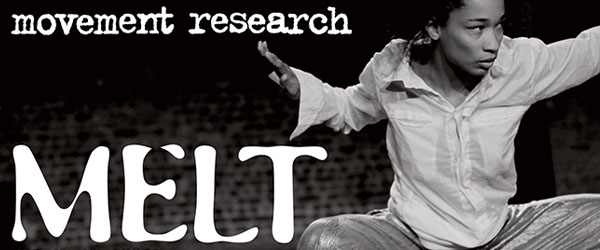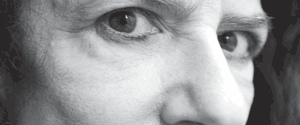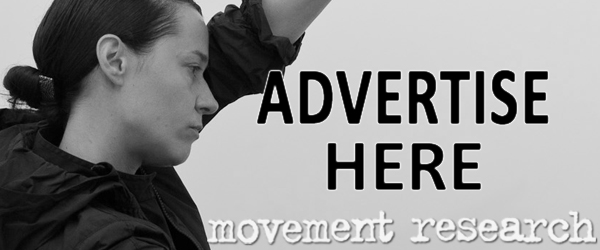Critical Correspondence
- 1 comment
- MRPJ Project
- 12.26.08
MRPJ#9/Body of Language/Figure of Speech: “Fast Hands” by Julie Carr
I was at Naropa in the summer of 1991 studying dance improvisation with Nancy Stark Smith and Steve Paxton. I was also sitting in on many of the lectures and readings that were given through the Jack Kerouac School of Disembodied Poetics (The Naropa Institute’s writing program). I was lucky enough to hear poet Clark Coolidge give a talk on Kerouac one evening. What I still remember vividly from his talk was a physical description of Kerouac “writing” that Coolidge quoted from Philip Whalen. Here is a bit of it:
He could type faster than any human being you ever saw. The most noise that you heard while he was typing was the carriage return, slamming back again and again. The little bell would bing-bang, bing-bang, bing-bang! Just incredibly fast, faster than teletype. And he’d laugh and he’d laugh. Then he’d make a mistake, and this would lead him into a possible part of a new paragraph, into a funny riff of some kind that he’d add while he was in the process of copying. Then, maybe he’d turn a page of the notebook….he would exclaim and laugh and carry on and have a big time doing it.
There was something intensely exciting about Kerouac’s writing-state that had successfully transferred from Whalen to Coolidge and then, through his subtly passionate delivery, to us, though I for one had very little knowledge of Kerouac’s writing having only given On The Road a one-time obligatory college-student read. It occurred to me that Kerouac’s writing-state was directly parallel to the immediate, responsive, “open” body/mind sate I was learning to look for and appreciate in dancing.
In the essay that Coolidge derived from that talk, he gives an in-depth description of Kerouac’s style and process, presenting Kerouac’s method as an example of a relatively direct engagement with “the moment,” both as it physically occurs and as it is layered with memory and imagination. But for me what was most powerful that evening, and what continues to move me, was the importance Coolidge was placing on the writing-state itself. What seemed most valued was not that “great writing” happened, but that we (as readers, listeners, audience) are given the opportunity to witness, through the writing, the state of mind that allowed for, or more begged for, this particular brand of poetic language to arise.
Later in his essay Coolidge quotes Kerouac describing writing out-of-doors:
Everything activates in front of you in myriad profusion, you just have to purify your mind and let it pour…slap it all down shameless, willynilly, rapidly…
Writing, then, as a way to grab at the world as it is passing by. There is an urgency to this activity. If you make the leap into believing that the time/place you are in (and you within it) is intrinsically unique, and is—for just that reason—important, then writing, as the means of recording and so holding some part of this world in your hand, becomes a powerful choice. The action of writing can take on an immediacy and a charge, and can begin to assume the physical engagement of dancing.
This hyper-awake-writing-state I was hearing described held within it many of the values we were cultivating in the dancing that summer; not what happens, but that it happens. The task I felt invested in seemed to be about sustaining interest; accepting the materials as they arose and making them important simply by giving them full attention.
From this perspective it seems that the charge generated by attention creates meaning. By giving our surroundings and the situations we land in our close noticing, we grow to appreciate what may otherwise seem ordinary. Under our focus, the world opens up. The premise must be then, that everything (every place, person, event, memory, idea) has inherent importance simply because it is. Our job is to pay attention and to bring each other to attention. By both narrowing and widening our focus, we can observe closely the world, and then, using whatever tools we have, give each other the opportunity to do the same.
I am thinking now that what thrilled me most and what stayed with me about Coolidge’s talk was the way in which he gave it—his state of delivery, his commitment to honor another writer primarily for his ability to be engaged; to respond quickly and immediately to both the internal and external worlds that made up his life—and to find pleasure in his responses as he drummed and danced them into his typewriter.



post a comment ›